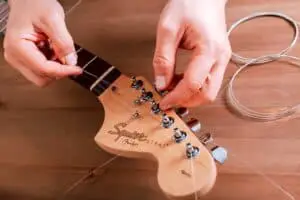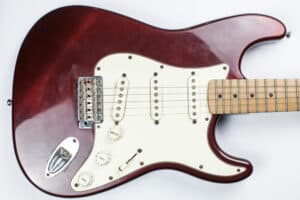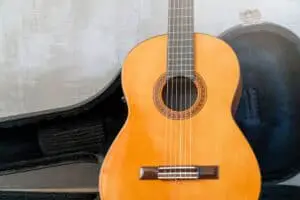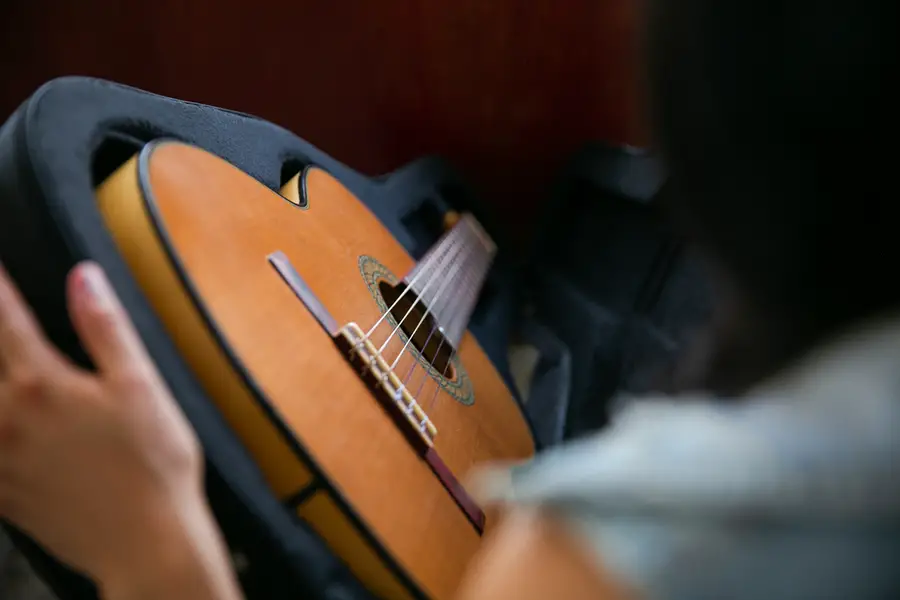
Like every device, anyone who owns any musical instrument will have a typical concern for its well-being. Musical instruments can be likened to pets, as they are also precious and delicate.
The guitar is one of the most relevant and delicate instruments known to a man currently. It is only natural for anyone who owns a guitar, whether professionally or personally, to be concerned about its storage mechanism.
Storing your guitar is simple enough. As long as you know the factors that may affect your guitar in storage and how best to tailor your storage mechanism and manners to negate these realities—ranging from the attitudinal effect of the owner to how best to position your strings.
Storing your guitar is different from just keeping them. Here is a guide on all you need to observe to store your guitar appropriately and safely while it awaits its next time of need.
The Correct Way To Store a Guitar
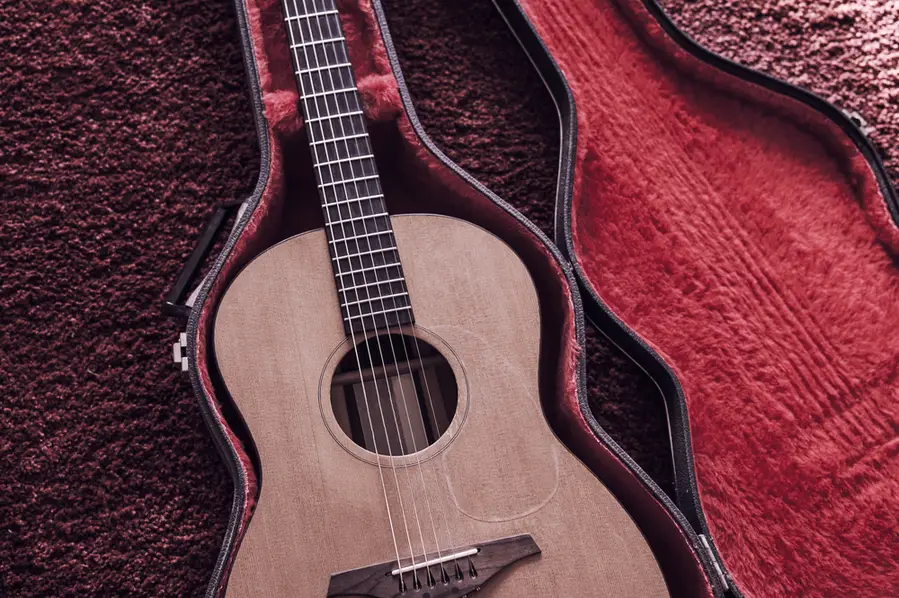
The following briefly highlights the tested and trusted mechanisms to store your guitar.
1. Keep it Close
The guitar was likened to a pet at the beginning of this piece due to its delicate nature and relevance to the owner. Storing your guitar can never be appropriate if they are not kept up close and personal.
So before you find out any other techniques and mechanisms to better store your guitar, decide to implement whatever you will be learning in your personal space, as that is the only space where you can vouch for the safety of your instrument.
2. Casing
This is the most crucial hack in storing your guitar. However, most guitar owners never really get the true essence of a guitar case and, as such, cannot correctly make good choices with their guitar cases.
An ideal guitar case is designed for the convenience of the instrument itself and not only that of its owner.
When choosing a case for your guitar, the well-being of your instrument comes first, and you may want to pick one that is streamlined to the shape and size of your guitar.
The purpose of any case like this is to ensure minimal strain, pressure, or unnecessary scratches on the surface of your guitar.
Budgets can also play a part in choosing your guitar case, as a custom-made case is more likely to fulfill the comfort and convenience of your specific guitar.
Nevertheless, any case is better than no case at all, as it also traps dirt and unnecessary debris from messing with the chemistry of your guitars.
3. Posture
This factor is another simple but heavily misunderstood concept of storing guitars. Guitars are best kept upright, especially uncased ones.
This is because an uncased guitar lying on its back is a source of accumulated tension on the strings, which will eventually mess with the functions of the chords.
Even guitars with rugged and durable cases are still best kept upright for extended periods. Though, it may not necessarily affect the guitar with a good and streamlined case immediately.
Nevertheless, laying your guitar in its case flat for more extended periods, especially when kept with other objects, could make the case bow and cause damage to your instrument.
4. Temperature
The temperature condition to best store your guitar can be described as moderate. As with anything, extremes of hot or cold will, in time, produce detrimental effects on both the appearance and functionality of your guitars.
Avoid keeping your guitar near heat sources and at the same time, any temperature below 30 degrees.
5. String Position
When storing your guitars for more extended periods, it is necessary to adjust the strings. This is to ensure the perfect condition of the strings when needed. Keep the string tension on the neck but lose the strings by one or two-part steps.
Guitar strings don’t need much tension when in storage but, at the same time, could develop neck bowing issues with no tension at all. Applying moderation in string tension is the best way to ensure the proper use of this precaution.
Conclusion
Storing your guitar is a pretty simple task that is very important in determining how long your instrument might last.
You need to be concerned enough about the well-being of your guitar to implement the above tips, which guarantee the proper storage of your guitar when applied accordingly.
Keep your instruments within reach, observe the temperature of your storage facility, make your guitar case a priority, and know how to manipulate your strings.
Frequently Asked Questions
No. Although it depends on the overall condition of your garage. Most garages are situated on most residents’ outskirts, which could periodically subject them to extreme temperatures.
This answer is subjective. Cases are built for storage purposes, and while your guitar may be safe without them, it may not be safe in storage.


